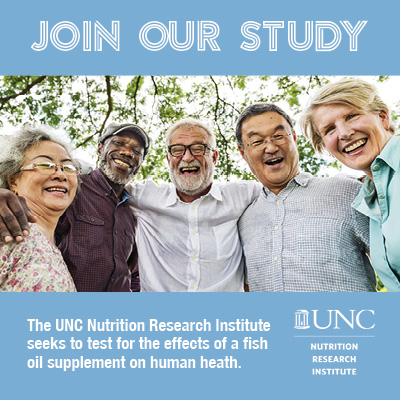Microbiome and Nutrition
The complex community of bacteria, yeasts and viruses living in our intestines, collectively known as the gut microbiome, is shaped, in part, by what we eat. Genetics, environment, and other factors also influence an individual’s microbial community. Research at the NRI investigates these complex relationships and their impact on disease risk. We use animal models and bioinformatics to study the associations between nutritional metabolites, gut microbiome, and health. What happens in the gut doesn’t stay in the gut. Your microbiome can play a role in cardiovascular disease, obesity and diabetes, and even cancer. Our team envisions a future where analysis of your microbiome can determine disease risk, and medical foods can be prescribed to treat and prevent disease by regulating the microbiome.
Publications
Microbiome and Nutrition Publications
2020
Population studies of TMAO and its precursors may help elucidate mechanisms. Meyer K
2019
Association of dietary patterns with the gut microbiota in older, community-dwelling men. Meyer K
2018
Meta-analysis of human genome-microbiome association studies: the MiBioGen consortium initiative. Meyer K
Human microbiota, blood group antigens, and disease. Sumner S
2017
Trimethylamine N-Oxide, the Microbiome, and Heart and Kidney Disease. Zeisel S
2016
Diet and Gut Microbial Function in Metabolic and Cardiovascular Disease Risk. Meyer K
Antibiotic-mediated gut microbiome perturbation accelerates development of type 1 diabetes in mice. Sumner S
Related News
December 2019
If food is medicine, why isn’t it taught at medical schools? November 14, 2019 – In a new report published by the Harvard Food Law and Policy Clinic, researchers write that, on average, students in medical schools across the country spend less than 1 percent of...
November 2019
Saroja Voruganti, PhD, Promoted to Associate Professor October 22, 2019 – Saroja Voruganti, PhD, was recently promoted to the rank of Associate Professor in the Department of Nutrition at the University of North Carolina at Chapel Hill. Nutrition Research Institute...
October 2019
Choline must be integrated into the prenatal supplement regimen, says expert review September 16, 2019 – This article was published originally on nutraingredients-usa.com on September 11, 2019. By Stephen Daniels The importance of choline during the first 1,000 days...
Hursting moves into 16th year of Breast Cancer Research Foundation grant
September 17, 2019 – “Our work has evolved from asking Is obesity increasing cancer risk? and What are the mechanisms linking obesity and cancer?” he says. “We have largely answered the first question and are still working on the second, but our focus really has turned to What are we going to do about it?”
Choline must be integrated into the prenatal supplement regimen, says expert review
This article was published originally on nutraingredients-usa.com on September 11, 2019. By Stephen Daniels The importance of choline during the first 1,000 days after conception is increasingly understood by the medical community, and dietary supplement manufacturers...
Fish Oil Supplement Study
Study Purpose: to test for the effects of a fatty acid supplement in human heath. Recruiting: Healthy* males and females ages 30-80 for up to 12 weeks. *No smoking, substance abuse, pregnancy or breast feeding, history of diabetes, cholesterol medications, or...




